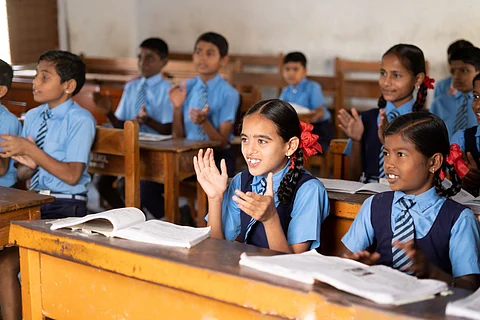

ISTOCK
The Karnataka State Education Policy Commission has called for a sweeping overhaul of the state’s education system, proposing structural reforms from pre-primary to professional courses, tighter regulation of private institutions, and a substantial increase in government spending on education.
The Commission's chairperson Prof Sukhadeo Thorat on Friday submitted his final report in three volumes to Chief Minister Siddaramaiah, sources in the office of Higher Education Minister M C Sudhakar said.
The 17-member Commission, which also comprises six subject experts, advisors, and one member-secretary, was formed to formulate an education policy.
According to a note issued by Sudhakar's office, the panel has proposed adoption of a 2+8+4 system in school education -- two years of pre-primary, eight years of primary, and four years of secondary education -- coupled with a firm emphasis on Kannada or the mother tongue as the medium of instruction up to class five in all board schools.
In its report, the commission recommended that school education be complemented by a bilingual policy pairing Kannada or the mother tongue with English, ensuring children are rooted in their linguistic heritage while gaining access to global language skills. It has also called for residential schools for children from migrant families, a gradual extension of the Right to Education Act to cover those aged between four and eighteen, and the universalisation of secondary education across Karnataka.
To enhance the educational quality, Karnataka State Education Policy Commission proposed ending the state’s dependence on National Council of Educational Research and Training (NCERT) textbooks in favour of locally developed content, boosting government school standards to the level of Kendriya Vidyalayas, and stopping the appointment of guest or contract teachers.